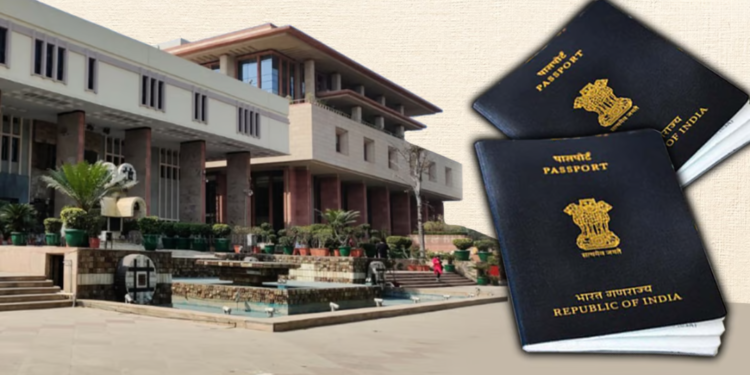The Delhi High Court recently directed the Central government to confer citizenship upon a 17-year-old girl who was born and raised in India to parents holding US citizenship at her birth but possessing Overseas Citizens of India (OCI) cards [Rachita Francis Xavier v Union of India & Ors].
Justice Prathiba M Singh issued the order, noting that the petitioner-girl’s situation fell under a unique circumstance not addressed by any specific provision of the Citizenship Act of 1955 or the Passports Act of 1967.
The Court determined that the petitioner, Rachita Francis Xavier, was not an illegal migrant and qualified as a person of Indian origin, making her eligible for citizenship by registration under the category of person of Indian origin as per Section 5(1)(a) of the Citizenship Act.
“The case falls under Explanation 2, as both parents of the Petitioner were Indian citizens who later obtained US citizenship. Furthermore, the Petitioner was born in India while her parents were lawfully residing in India as OCI card holders,” the Court observed.
It emphasized that Xavier should not be left stateless, deprived of fundamental rights such as freedom of movement, identity, and education, even in a foreign country.
“The denial of citizenship and consequent refusal of a passport could adversely affect the Petitioner and her family. There is no justification for subjecting the Petitioner, a young girl, to unnecessary hardship due to a unique and uncomfortable situation possibly caused by decisions made by her parents/family,” the Court remarked.
Xavier had approached the High Court seeking a passport, stating that she had never held one and was born in India to parents of Indian origin who had acquired US citizenship. Despite her parents being in India at her birth, her passport application was rejected as neither parent held Indian citizenship at the time.
After careful consideration, Justice Singh observed that the petitioner’s case indeed constituted a special circumstance under Section 5 of the Citizenship Act, warranting the Central government to exercise its authority to grant her Indian citizenship.
Accordingly, Justice Singh directed the Central government to utilize the powers conferred under Section 5(4) of the Citizenship Act and confer Indian citizenship upon Xavier.
The Court allowed her to apply for citizenship registration under Section 5 of the Citizenship Act and ordered the government to decide within 30 days in accordance with the Court’s ruling.
Upon obtaining citizenship, the petitioner could then apply for a passport, which should be issued to her within 15 days, the Court stipulated.
Advocates Bharadwaj S Iyengar and Vikas Upadhyay represented the petitioner, while the Union of India was represented by Central Government Standing Counsel (CGSC) Anurag Ahluwalia and advocate Abhigyan Siddhant.

















